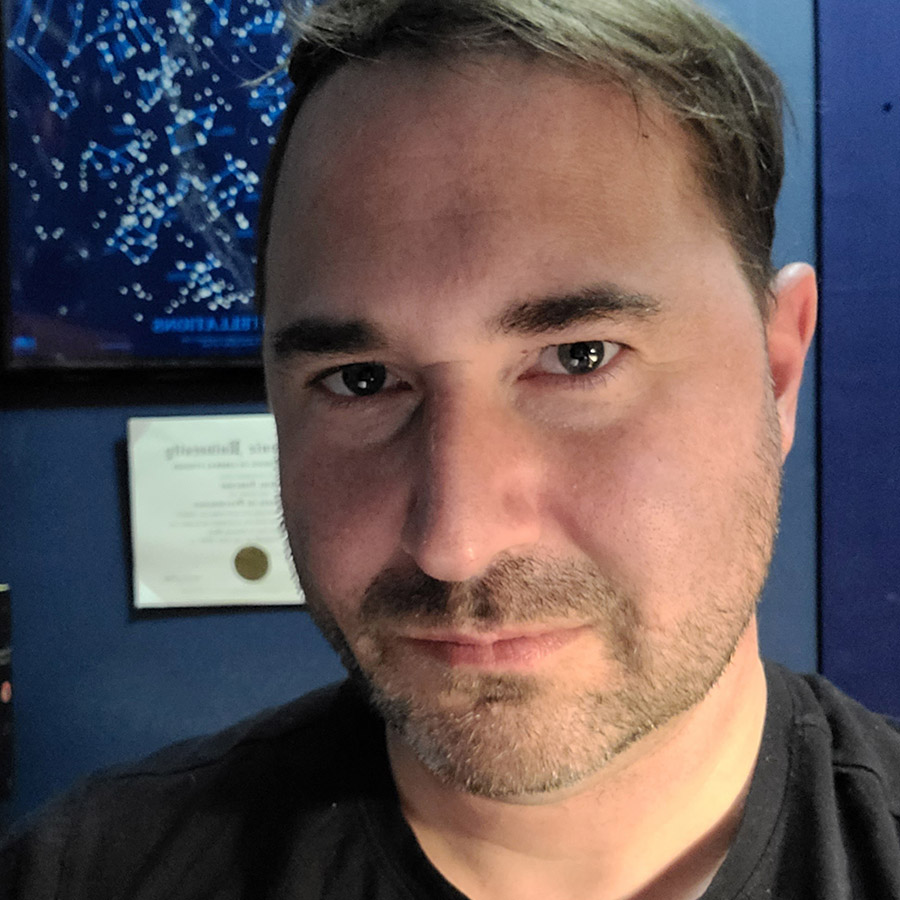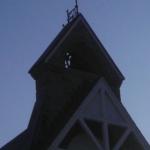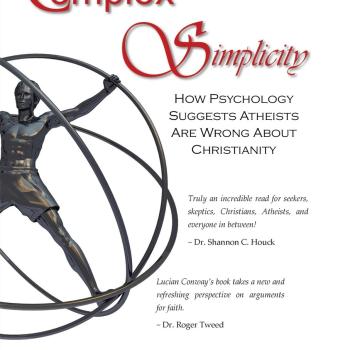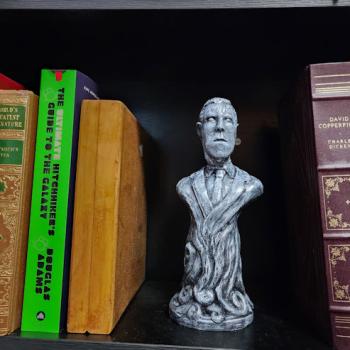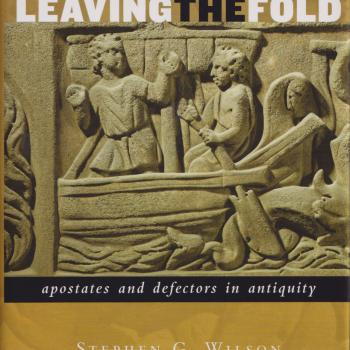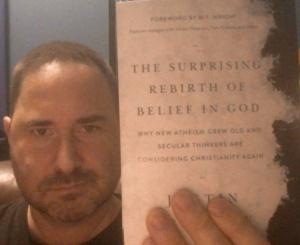
The book The Surprising Rebirth of Belief in God by Justin Brierley is hot off the presses (relatively speaking), and the premise suggested by the title runs wildly counter to the prevailing view of religious trends in the world. By all available data, religious involvement appears to be on the downswing worldwide rather than increasing. But one does not judge a book by its cover – or in this case, its title. Before attacking Brierley’s case, it is worth the time to hear him out.
Who is Justin Brierley
Justin Brierley got his start in radio during the height of what was known as the “New Atheism,” a social trend that turned into a world-wide sensation between the years of 2001 and 2016. New Atheism was distinguished by all the best seller lists suddenly filled with books attacking religion for its evils, by the internet and media visibility of atheist events or groups, by the rise in atheist celebrities, and by a reactionary rise in what is known as “Christian Apologetics,” meaning an intellectual defense of Christianity.
It was this latter trend upon which Brierley seized, hosting a weekly radio show/podcast in which he would moderate a discussion between two intellectuals, each representing the opposite point of view on a contentious topic related to religion. While the topics varied widely, it was most frequently a Christian-versus-Atheist discussion.
Brierley’s show gained quite a bit of attention worldwide, largely due to the fact that Brierley was an exceptional moderator who gave each guest a fair hearing, did not take sides in the discussion, and managed to keep the conversation civil and productive. Because he offered a service which was almost entirely unheard-of: a fair and perfectly even representation of both points of view – Brierley’s show became a favorite of atheists and Christians alike.
Brierley left the show recently, after over a decade of hosting it, and has gone on to devote himself to the topic on which he published this book: a renaissance in which New Atheism has died and interest in God has returned.
The Surprising Rebirth of Belief in God
The argument of Brierley’s book is, most simply put, that he has noticed a change in tone in the conversations he has hosted over the years. No longer are the interactions characterized by heated debates between angry atheists and defensive Christians. Rather, he has noticed a shift toward more openness on both sides to hear one another out, and discuss rather than argue. Intellectuals in academic fields appear to be considering some of the implications of theism and the Christian heritage in the West in a positive light. This is not to suggest that these intellectuals have “seen the light” or “come to Jesus,” but rather that the harsh edge of a Matt Dillahunty or a Richard Dawkins is gone from the conversations, and these latest guests have granted that religion has had a positive impact on the Western world, and there are some interesting arguments related to God. In its most modest form, his argument is that the so-called “New Atheist Movement” is over, and the West is somewhat warm to considering God again.
New Atheism
In the “Christian West,” meaning Europe and America, religion, and Christianity in particular, has dominated the consciences of the masses, and has held particular influence over seats of power for a good two millennia. But not everyone was happy with the state of affairs, especially after the events of the Enlightenment. While Christian values held sway for the duration of the Common Era, the Enlightenment lit a fire within the intellectual world, which was followed by an outright rejection of superstition and an embrace of human reason and the human intellect as the standard for discovering truth.
Christianity, which had founded and dominated the academy for a few centuries was being gradually edged out of the intellectual world, and by the time the Great Revival served as a cultural counter to the Enlightenment, Religion was seen as an area in which feelings, good will, and tradition dominated, but it was not a home for the mind.
Nevertheless, the world was still largely religious, with atheism in its hardest form existing in the arts and the academy, but never intruding too far into the culture.
There was a mounting and nearly invisible pressure, however, related to politics. Religion had its hand in the political world more than most would like, and a growing subculture of secularly-minded individuals were resentful of this power religion seemed to hold.
The pressure broke, however, upon the events of September 11th, 2001, when a tragic and very visible terrorist attack occurred in one of the most visible cities on earth within the most influential country on earth. This tragedy rocked not just America upon whose soil it was perpetrated, but the world as a whole.
This terrorist attack was connected in the media and in the popular consciousness to the Muslim religion, and suddenly people were willing to consider the evils of religion. With this opening, longstanding popularizers of atheism suddenly had a receptive audience, and began their publications, websites, speaking tours, protests, movies, and domination of all aspects of media.
The trend, dubbed “New Atheism” by a journalist in 2006, had quite a head of steam, and managed to keep that momentum for around 15 years, but eventually lost its prominence for the same reason it had once gained visibility: politics.
The fall of the New Atheism coincided with the election of the American president Donald Trump. Upon the election of this very controversial figure, an entirely different culture war broke out, and New Atheism had no place in it.
This was largely because New Atheism had preached the death of theology and its handmaiden: philosophy, and urged a return to empirical science to guide and shape humanity. But upon Trump’s election and subsequent events, the backlash that occurred on the political Left gave voice to a similarly growing cultural force. This force, technically the actualization of Critical Theory, was dubbed “Wokeism,” and the empirical science was not entirely compatible with Wokeism. Atheists, who were generally Left-aligned in their call for secularism, the removal of religious influence in the government, and a serious embrace of climate science and its associated threats; were not fully on-board with the sudden enthusiastic embrace of Islam, and the overthrowing of the academy by people who seemed guided by an almost religious zeal which did not quite believe that empirical science was the path to the future, but rather that the future was to be brought about by radical activism related to the categories of race and gender.
Suddenly, former leaders in the New Atheism movement found themselves in a bizarre alliance with religious believers in a movement which came to be known as the “Intellectual Dark Web.” The focus was no longer on the evils of fundamentalist Christianity, but rather on the exclusion of dissenting or critical voices in the academy, in politics, and on practically any public platform.
Atheism was not dead, and religion was still on the decline, but the objection to religion was no longer on the basis of its anti-scientific views, but rather on its exclusionary nature (there are fundamental standards which apply to all people), and its traditional values which did not align with progressive culture.
Consequently, religious alternatives, such as witchcraft and various New Age movements were on the rise, and the same people who decried Christianity as the source of all evil began to recognize that perhaps there were a few positive elements in Christianity after all.
New Atheist leaders such as Richard Dawkins, Sam Harris, and Bill Maher were not backing down from their atheism, but they were adjusting their criticisms of religion – recognizing that it is not so much religion, but rather dogmatic fundamentalism of any kind, which is damaging to society, the academy, and government.
The above outline is more my assessment of the situation than it is Justin’s, but Justin’s essential argument when it comes to the title of his book is within the same vein: New Atheism has run its course, and the cultural battle lines have been fundamentally re-drawn. Given that Justin has hosted most of these individuals in discussions over the years, the above synopsis characterizes the shift in tone that he has seen.
The remainder of the book is an intellectual defense of Christianity. The cultural shift Justin observes in the book is no doubt on-point. His optimism in reference to the return of God-beliefs remains to be fully supported by the statistics, but one can only observe how events transpire from here.
Relationship to Deconversion
A trend Justin does not mention in his book is what I have called the “Deconstruction Movement.” The “Wokeism” Justin describes is guided by Critical Theory, which is itself the child of Postmodernism. It is from Postmodernism that we gain the term “Deconstruction.” This term has become a name describing the act of breaking down any idea one dislikes to its individual parts, and then finding fault with each of those parts.
While the New Atheism was a child of Modernism, which held Reason, Science, and the search for Truth as its goal, Deconstruction centers around a reduction of harm. Truth is not the goal. Instead the goal is equity and a dismantling of power structures.
Because the Church is seen as a power structure, it is a monolith which needs to be attacked by way of Deconstruction. The Church is seen as an entity which causes harm by opposing personal freedom to identify as one chooses, and any entity which causes harm must be destroyed.
Deconversion is as alive as it ever has been under the new order, but no longer because of science and reason, but rather because of identity and power.
New Atheism is dead. Long live Deconstructionism.
The Verdict
Justin has interviewed the most influential voices in both New Atheism, and in the new cultural battle, and his experience with these voices are not to be dismissed. The book is well-written, engaging, and worth the read.
His thesis is a bit of a projection into the future based on themes and trends he has personally witnessed. It may be valuable as part of a cumulative case, but it does not, in my opinion, stand as evidence of anything akin to a new Great Revival (and I don’t think he would claim that it does).
It will be interesting to see what the future holds. The rise of the New Atheism was dramatic and could not have been predicted, and the current shift in the cultural tone was similarly dramatic, and far more complex than the New Atheism was.
As a researcher, I can only speak to the subject of conversion and deconversion, and Justin’s book extends beyond that realm. Justin is not an impartial party in this work, nor does he claim to be. He is very much looking forward to a rising tide in favor of Christianity, and his book reflects this fact in its rational defense of Christianity as being true.


